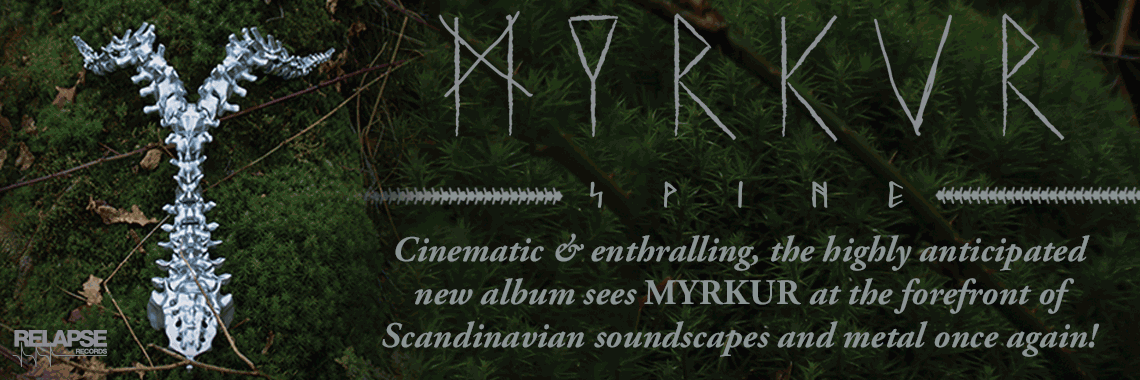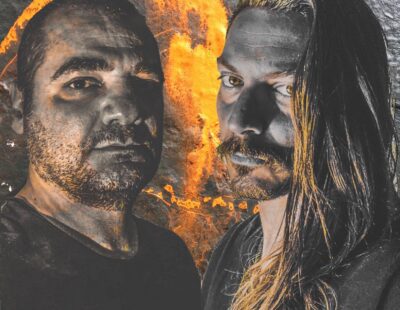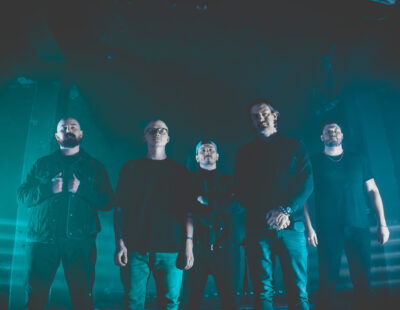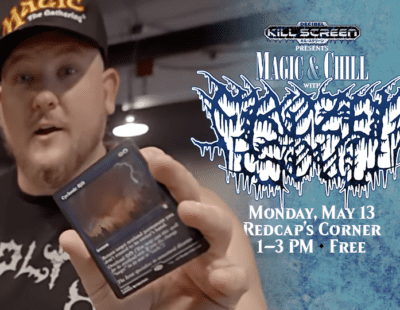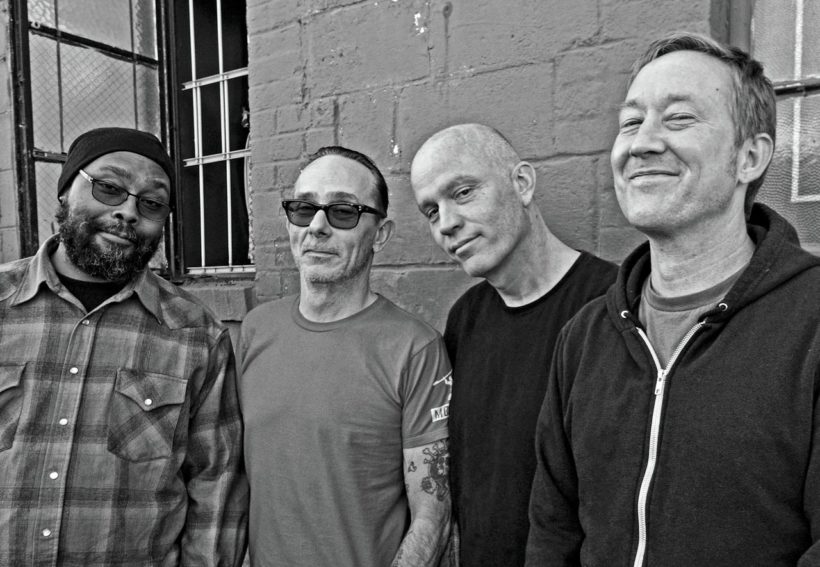
Of the many worthy bands that emerged from the early-to-mid 80s DC hardcore scene, Dag Nasty continues to resonate. Like their peers in Rites Of Spring, Dag Nasty introduced an unusual level of sensitivity and introspection, not to mention melodicism, into a genre that had largely been defined by bluster. The band recorded a set of now legendary demos with original singer Shawn Brown (later of Swiz), but split with Brown before recording the classic album Can I Say with Dave Smalley. Dag Nasty followed that with the also classic Wig Out At Denko’s (featuring third vocalist Peter Cortner) and Field Day. A later reunion with Smalley led to new music, but the band laid dormant for more than a decade in the new century. Remarkably, founding guitarist Brian Baker (also of Minor Threat, The Meatmen, Bad Religion) decided to see if any of his old bandmates — including Brown — wanted a play a show to help filmmaker Scott Crawford finish the DC hardcore documentary Salad Days. What followed was a series of well-received shows, a few new songs, some short tours and, believe it or not, a new record that will likely be released by the venerable label Dischord in 2018. Decibel caught up with the entire band (Baker, Brown, bassist Roger Marbury and drummer Colin Sears) before a sold-out San Francisco show to discuss their new journey. Later that night they played a set of Dag Nasty classics – and even a few a few Minor Threat songs – to an overflow crowd.
Dag Nasty is music that was made by young men about the concerns of youth. When you come to a later point in your journey do you approach these songs differently?
BRIAN BAKER: You’re overthinking it. The purpose of this journey is to ride around in a van together and relive our experiences as teenagers together. This group didn’t get to spend a lot of time together because we had about 100 different singers and this non-benevolent Mussolini character on guitar (laughter). Playing these shows is a total blast but I’m not looking for new meaning in songs Shawn and I wrote when we were 17 or 18. I think it’s a period piece and evokes certain memories.
SHAWN BROWN: Well, I’m nowhere near as angsty and pissed as I was decades ago.
ROGER MARBURY: To answer your question, I’d say there’s no new meaning being added to these songs. It’s a total throwback.
BAKER: It’s a selfish pursuit. I’m very glad people want to come and see it and it’s really fun to play. But it’s about our shared experience.
MARBURY: I actually can relate to these lyrics in the sense that they are universal. We were never a “Reagan: Fuck You” band. The songs are about things that still come up in your life.
I can listen to albums like Can I Say decades later and it does remind me of a certain period of my life. But the music also nicely fills in spaces and takes on new meanings considering where I am now.
BAKER: I’m happy that is the case. I’m a guitar guy and I don’t know half the words!
COLIN SEARS: There are songs for me that definitely seem to have a different perspective as a 50-year-old than as an 18-year-old.
MARBURY: Well, these are universal songs that are based on personal experiences. And they still resonate.
Had all of you kept in touch over the years? What was the impetus to get back together?
BAKER: We had been in touch and I’d seen Roger a lot. Our friend Scott was making a movie called Salad Days. He’d been working on it for a long time and just didn’t have enough money to get it done. He wanted to do a benefit to finish it and asked if Dag Nasty would do a show. After all the years of no’s I finally said “that’s a great idea. Why don’t I call the guys and see if they want to do it?” And they all did. It was supposed to be a one-off and it went really well and was so much fun and we decided to leave the door open to play more. It seems like every six months or so something comes up. It’s never more than a week or so because everyone has kids and lives. This is our third excursion and we’ve done a few one-offs. We are now a band and have put out a single. We have a great label you might have heard of and they are very good to us. We are going to do a full-length album when we have enough songs. It’s just about diligence and I don’t excel at it. We’re going to keep doing this as long as it’s feasible.
MARBURY: We all have jobs and families. Well, his job (points at Baker) is a professional musician and his schedule is the most difficult. Shawn is a tattoo artist. I can take off when needed. Colin is regimented because he has a real job with a suit. It can be difficult to make it all line up but when it does it’s great.
What do you make of the staying power of DC hardcore not just as a regional movement but as a global thing now?
BAKER: It invented something that didn’t exist. DC hardcore is a specific style of punk rock just like 1977 London. As punk has become a sanctioned genre of music and has the same viability as a jazz section of a record store musical archaeologists are having a great time discovering it. There’s also a good story with a good cast of characters. It was small. It had that lightning in a bottle aspect and has been imitated but not replicated. There’s also a lot of really good music that still holds up in ways other subgenres haven’t.
MARBURY: The Internet has a lot to do with it. This type of music for a while wasn’t very available. Now it’s easy to get and the story is easy to learn about. It doesn’t seem like you have city-by-city sounds anymore. When we did this (when we were younger) we toured around and were in touch with others into the same thing. Now that you can easily get into things it’s easy for it to lose a regional touch.
BAKER: With New York hardcore there was a definitive quality to it. DC was similar. In general, the lyrics from DC were not nihilistic or textbook punk. It wasn’t unbridled rage against the system. It was a personal politics.
BROWN: Straight edge has also resonated too and people interested in that are inevitably drawn back to DC.
SEARS: There’s also the melodicism of the guitars and vocals, compared to other types of fast hardcore. It’s more appealing and has held up over the decades.
I have to imagine that given the Internet you hear from people all over the world.
BAKER: I never respond to messages (laughter).
SEARS: There were those dozen Bosnians…
MARBURY: Apparently we are big in Bosnia and there was a group of people around the time of the war that had our tape. When we played in Slovenia they came out in force and said we saved their lives.
BROWN: When you think about that, it’s pretty powerful. A tape from this little band from DC held these people together.
What did you enjoy more about playing together at this stage of your life?
BROWN: We’re older, smarter and we get along better. And honestly, it’s just the fact that we are getting to do it.
BAKER: There’s a sense of gratitude that wasn’t there when we were younger. The success we had at the time was pretty remarkable but when I was 19 I would never think, “we just played to 250 people in Raleigh.” I didn’t reflect on how awesome that was. My idea was that next time we’ll play for 400. We didn’t have any concept of monetizing it but we did want to increase the visibility and go more places. But we broke up well before the idea of making money came up. We were searching for what we wanted to be then and now we know who we are.
MARBURY: At every show, there are always people saying they waited 30 years to see this happen.
Do you have any new songs kicking around?
BAKER: I have the pieces I don’t have the glue. We need to get into a room and hammer stuff out. I’m insisting that this next record needs to be done in the same room. Most of the stuff I do creatively is remote now. The hard work is performing what you write. I want this to be the exception.
Most people came up with Can I Say and it’s their reference point for the classic songs. The original versions with Shawn were released much later. How do you present these songs to an audience?
BROWN: I just try to approach it how I want to approach it. I will follow certain patterns but put my voice to it. I still have as much passion for it, even if it’s a song I didn’t write.
MARBURY: Shawn gets to sing his songs the way he did them originally. But some people sing along the way Dave (Smalley) performed them. Shawn is even able to make the Wig Out At Denko’s material his own.
BROWN: What’s fun about this that I can hear whatever melody they are singing.
BAKER: Shawn is more accomplished because he’s been singing for 25 years. We look at every record and we need to play for an hour because a hardcore show shouldn’t be long. What we play are the best songs that take up an hour. The way Shawn does it now – I don’t hear him doing his old Shawn, or Dave, or Peter. He is doing Shawn now and it’s fantastic. He’s a better singer. Roger can also sing almost everything. When you hear a melody Roger puts it in right over the vocals. It’s the best we ever been.
There’s a lot of darkness in our country in the world right now. The original DC stuff came up during the Reagan years but our current political situation seems far worse.
MARBURY: More foreboding for sure.
BAKER: This is amateur evil. I’m used to professional evil. The GOP has been trading in high-end shitty for a while. Now we have carnival baker evil and it’s erratic and frightening. We are getting back to the way things were in 1980 or 1981 when just your physical appearance was so shocking to some people that it would provoke violence. There is a certain tenuousness that exists now and I’m a 52-year-old guy in a sweater from J. Crew. Just being in this building and playing this music is a subtle fuck you to all of that. I think we’d be defined as a bunch of multi-racial lefties who still believe in human kindness.
BROWN: The vibe everywhere in the country is heavy. A not-so-sleeping dragon has been uncovered. A lot of people think that because a certain person is in office it’s now o.k. to express certain things. Before, I think we had a society where the ideas were there but not out in the open.
I appreciate when things come full circle in life. Your music was enormously meaningful to me growing up and I’m listening to you tonight, in 2017.
BAKER: And that’s overwhelming. I’m incredibly grateful and amazed that something that was never intended to do that had that result. We were shooting from the hip and this was a hobby.
MARBURY: It’s taken on a bigger life even in the last five years.
SEARS: Our concern 32 years ago was could we spend a few dollars on a quart of oil?
MARBURY: But our whole life was the band. So it’s great when people say they first heard us when they were 15 and they are still listening.

